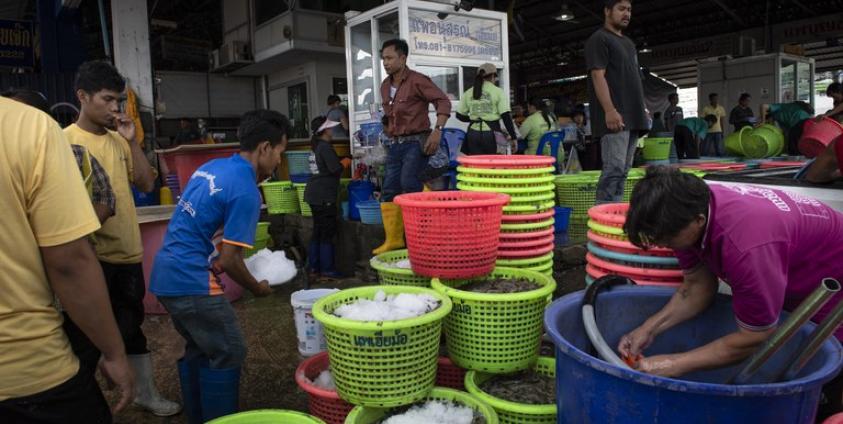The Military Council facing a pressing need for foreign currency, has been desperately pursuing the collection of income tax from the earnings of Myanmar workers abroad since last week.
Myanmar embassies in Thailand, China, Singapore, and Korea have issued directives instructing Myanmar workers to pay income tax following the Junta’s new directives.
On November 22nd, the Ministry of Planning and Finance under the Junta announced that Myanmar citizens residing abroad are required to pay income tax, effective from October 1st.
On December 13th, the Myanmar Embassy in Bangkok issued an announcement for the second time, reiterating that Myanmar workers in Thailand are obligated to pay a two percent income tax.
"There is frustration among the workers over the collection of income tax by the Military Council, which fails to protect workers' rights”, U Moe Kyaw, head of the Mae Sot-based Yaung Chi Oo Workers' Association told Than Lwin Times.
Myanmar labor activist organizations in Thailand estimate 5 million Myanmar nationals are residing and employed in Thailand, encompassing both legal and undocumented status.
According to the statement from the Military Council's Thai embassy, the monthly income for general workers employed in various sectors such as factories, manufacturing, agriculture, construction, and service industries in Thailand is fixed at 7,500 baht. Consequently, workers in these sectors are required to pay two percent of this amount, 150 baht, as income tax.
Furthermore, the Military Council has declared that citizens employed abroad must channel 25 percent of their salary through official money changers.
Ko Htet, who came to work in Thailand under the MOU system commented, "We have to settle the bills for our stay, meals, and travel here. The Military Council's tax collection is sure to make things tougher for us.”
The practice of collecting income tax from Myanmar citizens working abroad, a tradition upheld by successive Junta regimes, was discontinued in 2012 during the U Thein Sein administration.
Under the tax law amended after the coup, Myanmar workers abroad must pay two percent of their income in foreign currency either monthly or quarterly to the relevant embassies.
The Myanmar Embassy in Singapore recently announced the income tax requirement, stating that only those who comply can renew passports and get assistance with consular matters.
A tax and economic expert who monitors the Junta regime, asserted the Junta is seeking to gather taxes for the purpose of financing extensive military expenditures. This move could potentially breach treaties with countries such as India, Laos, Thailand, South Korea, Singapore, Vietnam, and the United States, designed to prevent a two-way tax burden on workers.
These treaties typically exempt Myanmar nationals working in these countries from paying taxes to the Myanmar government, instead directing payments to the host countries.
However, the terms of the treaties vary, and some individuals may still be required to pay taxes directly to the Myanmar government.
In the aftermath of the military coup, a significant number of Myanmar citizens sought employment abroad, both legally and illegally, in neighboring countries.
The Military Council has further heightened its control, threatening to revoke MOU licenses for overseas Myanmar workers who fail to transfer earnings through official channels, or pay the required income tax.







